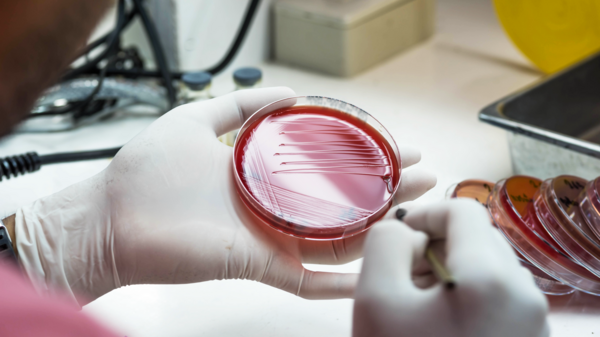A world-leading Australian virologist has been recognised for transforming the way infectious diseases are detected and understood.
Professor Edward Holmes, National Health and Medical Research Council Leadership Fellow and Professor of Virology at the University of Sydney, has been awarded the 2025 GSK Award for Research Excellence (ARE) for his groundbreaking use of metatranscriptomics and artificial intelligence (AI) to identify viruses, improve diagnostics, and shed new light on how epidemics emerge.
Metatranscriptomics, sequencing all the genetic material in a sample to determine which viruses, bacteria, and pathogens are active, offers a comprehensive view of infection. By combining this approach with advanced AI tools, Professor Holmes is creating methods that could radically improve the speed and accuracy of diagnosis.
During the COVID-19 pandemic, Professor Holmes was the first to release the genomic sequence of SARS-CoV-2 publicly. This decision enabled scientists around the world to begin developing diagnostic tests and vaccines within days. It was a landmark contribution to the international pandemic response and one of many breakthroughs in a career defined by innovation.
Speaking at the award presentation in Canberra, Holmes said, “It’s an honour to receive the 2025 GSK Award for Research Excellence and to see our work be acknowledged in this way. Identifying the cause of an infection can sometimes be a complex, piecemeal process that is too slow to change the course of a patient’s illness. We are looking to change that. By pairing metatranscriptomics and advanced AI, we can now identify all the different microbes responsible for a specific infection. We are hoping to use this technique to deliver a diagnosis in as little as 24 hours, giving clinicians a critical head start in treating patients and responding to emerging threats.”
Holmes and his team are already collaborating with clinicians at a major Australian hospital to build a one-stop AI-based platform that can rapidly identify pathogens from real patient samples, initially focusing on respiratory conditions. The partnership underscores the importance of bridging research and frontline care, with clinicians highlighting how speed and accuracy can translate into tangible improvements for patients.
Dr Krispin Hajkowicz, Senior Infectious Diseases Physician and Clinician Researcher at the University of Queensland, said the technology could be transformative. “When a patient is admitted with a life-threatening infection, every hour counts. This technology has the potential to give us an accurate diagnosis within hours from a single sample. That speed means we can make targeted treatment decisions sooner, avoid unnecessary medications, and give patients the best chance of a faster recovery. I’m incredibly proud to be part of this journey and congratulate Professor Holmes on this well-earned recognition.”
The $150,000 grant accompanying the award will help Holmes accelerate the refinement of the AI platform, including investment in specialised equipment to process and interpret sequencing data at speed. “Current metagenomic techniques generate enormous volumes of data, often taking days to interpret,” he said. “Our platform will cut through that complexity to deliver accurate results within a clinically relevant timeframe, directly supporting better patient care.”
The award was presented at the Australian Academy of Science’s Science at the Shine Dome Spring Soiree. Dr Alan Paul, Executive Country Medical Director at GSK Australia, said Holmes’ research represents a step-change in infectious disease preparedness. “Professor Holmes’ work is a breakthrough in how we approach infectious disease detection. By combining global expertise in virology with cutting-edge AI, he is creating a tool that could save lives, reduce healthcare costs and improve future pandemic preparedness. We are proud to support this innovation through the GSK Award for Research Excellence.”
Now in its 45th year, the GSK Award for Research Excellence is among the most prestigious honours in Australian medical research. Previous recipients include some of the nation’s most distinguished scientists, from cancer immunotherapy pioneers Professors Georgina Long AO and Richard Scolyer AO, to global health leaders such as Professor Brendan Crabb. Last year’s award went to Professor Matthew Kiernan for his work in neurodegenerative disease.
